Little Minds, Big Lessons: How Everyday Conversations Shape Young Boys’ Grow

Little Minds, Big Lessons: How Everyday Conversations Shape Young Boys’ Grow
In one of my recent mentoring sessions with a 7-year-old client, I found myself reflecting on how impactful small, intentional conversations can be in a child’s development. At this age, everything is still new—time, emotions, structure, even language around what they’re feeling or thinking.
Our session started with what seemed like a simple task: completing a series of numbered steps together. But what unfolded was far more meaningful than a checklist. As we moved through each task, I noticed how focused and engaged he became—not just in doing the work, but in the rhythm of our interaction.
That rhythm led us naturally into a conversation about time. He was curious about the difference between AM and PM, something most adults take for granted. Rather than just giving a definition, I leaned into the teaching moment—tying morning and night to real events in his life, helping him visualize the concept in a way that made sense. It wasn’t just about telling time; it was about building understanding, confidence, and connection.
Later in the session, we shifted into a space of personal reflection. I asked him what he was grateful for, and at first, his answers were broad—things like water and his house. But with a little guidance and encouragement, he began to think deeper, eventually naming things that brought him real joy: basketball and his dog.
It was a subtle but significant shift—moving from surface-level responses to specific, heartfelt expressions of appreciation. And in that moment, he wasn’t just listing things—he was learning how to name what matters to him, which is a foundational skill for emotional literacy and mental well-being.
This mentoring session reminded me that the most meaningful growth doesn’t always come from grand lessons or dramatic breakthroughs. Sometimes, it’s hidden in the pauses between tasks, the curiosity in a child’s question, or the quiet pride of being able to say what you’re thankful for. These conversations might seem small—but for a 7-year-old boy learning to find his voice, they’re everything.
Behind every question a young boy asks is a developing brain, a searching heart, and a soul eager to be understood. And sometimes, it’s the smallest conversations that leave the biggest impact.
In a recent mentoring session with a boy under the age of 10, we witnessed how simple yet intentional dialogue—about daily tasks, time, and gratitude—can support emotional development, cognitive skills, and character formation. These exchanges weren’t loud or dramatic. They were quiet, focused, and deeply human.
Building Focus Through Task Completion
The session began with a structured series of numbered tasks. Each one served as a stepping stone, giving the child a clear direction and sense of accomplishment. As he documented the steps, he wasn’t just staying busy—he was building executive function skills: the ability to plan, stay organized, and see a task through to the end.
This kind of task work, when scaffolded with care, helps children develop confidence. They begin to understand the satisfaction that comes from progress, not just the pressure of performance.
Teaching Time: AM vs. PM and the Beauty of Discovery
As the tasks wrapped up, a common childhood curiosity emerged: what’s the difference between AM and PM?
Instead of rushing to explain, the mentor slowed things down—relating morning and night to familiar routines like waking up for school or winding down before bedtime. These grounded explanations helped turn an abstract concept into a real-world understanding.
Moments like these reinforce that learning doesn’t always come from a book or a lecture. Sometimes, it comes through connection—through stories, examples, and the willingness to sit with a child’s curiosity.
Gratitude as a Gateway to Emotional Growth
One of the most profound parts of the session happened when the child was asked what he was thankful for. His first answers—water, his house, and life—were sweet and thoughtful. But with a bit of prompting, he added more personal reflections: basketball and his dog.
That shift from general to specific may seem small, but it’s actually a powerful step in emotional literacy. It teaches children how to recognize what brings them joy and how to communicate it. This helps wire the brain toward positive thinking and self-awareness—two critical tools for mental health and identity development.
The Role of Encouragement and Safe Space
Throughout the session, encouragement flowed freely. The adult mentor wasn’t correcting as much as guiding—asking questions, validating emotions, and celebrating effort. This type of positive reinforcement builds trust, which is foundational for any future growth.
When young boys are given space to explore their thoughts and feelings without fear of judgment, they begin to internalize a very important message: my voice matters.
Small Rituals, Big Meaning
The session ended with two small but meaningful tasks: the child would write down three things he’s grateful for in his journal and move a yellow tassel—a symbolic act of progress.
These small rituals offer tangible markers of growth. They create visual cues for reflection and give young minds something to return to—a physical reminder of how far they’ve come.
Why This Matters More Than Ever
Boys under 10 are forming the blueprint of who they will become. In this window of development, they need guidance—but more than that, they need presence. They need adults who will engage them, ask meaningful questions, and celebrate both their ideas and their efforts.
The truth is, we don’t need extravagant programs or long lectures to reach them. We just need moments. Conversations. Invitations to think deeply and speak honestly.
That’s how we raise emotionally aware, resilient, and thoughtful young men.
Let’s keep showing up. Let’s keep listening.
Because the greatest lessons often start with just one question—and a heart willing to answer it well.
Table of Contents



